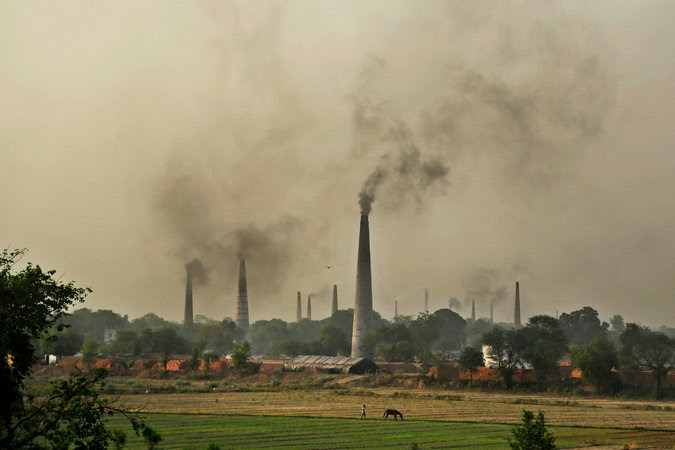By GARDINER HARRISJUNE 22, 2015

Brick kilns outside New Delhi, India. A hydroelectric project in northern India financed by the World Bank was met with protests. Credit Altaf Qadri/Associated Press
WASHINGTON — A major human rights organization on Monday accused the World Bank of doing little or nothing when critics of its projects are harassed and intimidated by governments that benefit from its loans.
The organization, Human Rights Watch, released an extensive report documenting multiple cases in India, Cambodia, Uganda, Uzbekistan and elsewhere where critics of projects funded by the World Bank were arrested or harassed by officials because the critics tried to slow, change or stop the projects.
“The bank should put in place special measures to deal with reprisals against critics, but it hasn’t,” said Jessica Evans, a senior advocate and researcher at Human Rights Watch and co-author of the report. “The World Bank simply isn’t comfortable talking about human rights issues.”
In one case in northern India highlighted by the rights group, a 30-year-old critic of a hydroelectric power project funded by the World Bank said employees of the company in charge of constructing the dam publicly ridiculed protesters as prostitutes, insulted their caste and warned of “severe” consequences if protests continued.
Some 300 million people have no electricity in India, and hundreds of millions more get only a few hours of power each day. Even so, India already has some of the worst air pollution in the world, with 13 of the 25 most polluted cities on the planet, according to the World Health Organization, and The Lancet reporting that 1.5 million deaths each year result from unhealthy air.
So hydroelectric power is widely seen even by many environmentalists as vital to improving the lives of hundreds of millions of people in India while not worsening an already dire pollution situation.
Ms. Evans dismissed concerns that such vital development projects might not be constructed at all if the World Bank began to intervene in politically sensitive issues, like the right to protest publicly against government efforts. Even in democracies like India, protests are often dealt with harshly.
The report quoted President Yoweri Museveni of Uganda as saying: “Those who delay industrial projects are enemies, and I don’t want them. I am going to open war on them.”
In fact, support for crucial development projects in poor nations has been canceled because of concerns raised by the World Bank. One such project is the Padma Multipurpose Bridge project in Bangladesh, which could transform the lives of hundreds of thousands of poor farmers; the World Bank canceled its support in 2012 because of concerns about corruption, delaying construction by years. In 2014, the bank postponed a $90 million loan to Uganda’s health system over a law that toughened punishment of gays.
“When allegations of reprisal are brought to our attention, we work, within the scope of our mandate, with appropriate parties to try to address them,” said David Theis, a World Bank spokesman. He said the bank had taken action in cases where reprisals against critics had been documented, “and we will continue to do so.”
But Ms. Evans said the World Bank needed to work harder to persuade countries to protect protesters against arrest and other reprisals.
“The World Bank generally has high-level access to the governments it supports and could exert pressure to push them to tolerate divergent views and accept criticism about development projects as valuable rather than cracking down on dissident voices,” Human Rights Watch said in a statement.
A version of this article appears in print on June 23, 2015, on page B5 of the New York edition with the headline: Human Rights Watch Accuses World Bank of Inaction When Protesters Face Reprisals.
Leave a Reply